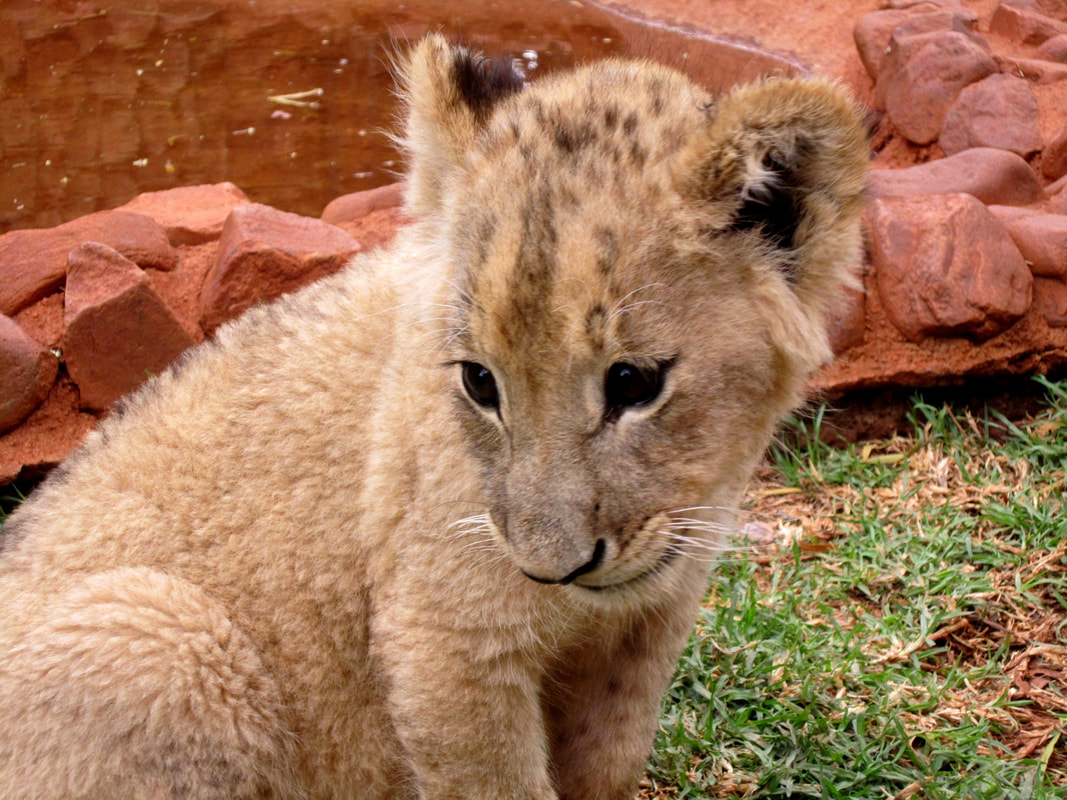
Lions eating grass? Indeed, volunteers observe the lions not only eating grass (just like dogs), but leaves too. Apparently the greenery provides fibre for the stomach to help digest the feathers, fur and bones in their diet.
differentiate yourself
Become a distinguished volunteer (or student)
Embrace dynamic ethical species preservation through applied science, education and personal contribution
Our mission is to preserve the existence of lions and the other big cats of Africa. Many opportunities exist for animal conservation in Africa, but NOTHING compares with the Ukutula Conservation initiative. As the very first independent, privately owned bush laboratory on the continent of Africa, the Center offers a dynamic opportunity for learners interested in making a tangible and lasting contribution to the preservation of big cats on the verge of extinction.
Embrace dynamic ethical species preservation through applied science, education and personal contribution
Our mission is to preserve the existence of lions and the other big cats of Africa. Many opportunities exist for animal conservation in Africa, but NOTHING compares with the Ukutula Conservation initiative. As the very first independent, privately owned bush laboratory on the continent of Africa, the Center offers a dynamic opportunity for learners interested in making a tangible and lasting contribution to the preservation of big cats on the verge of extinction.
Read more....
The year 2016 heralded the addition of an exciting new laboratory, constructed to enable local and international scientists to preserve endangered animal DNA, but also to study disease, with the immediate purpose of control and eradication in the longer term. Through the science of Cryobiology, lions, cheetahs and tigers will specifically benefit, but the methodologies can be expanded for application within other endangered species. A blueprint for the future preservation of the species, including the crucial world-wide exchange of genetic material for existing gene pools is now plausible, utilizing freezing technology at extremely low temperatures below −180 °C or −292 °F. Perhaps many years of research still lie ahead, including the necessity of immense financial resources, but the efforts of every single person contributing at Ukutula will make a lasting and indelible difference. In August of 2018, Ukutula facilitated a world first - the birth of two beautiful cubs through non-surgical artificial insemination. This break-through has tremendous implications for endangered species world-wide.
As a program participant, your senses and thinking processes will be heightened at Ukutula Conservation Center as you participate and personally contribute toward the survival of the species. You will experience the rough and rugged beauty of the African bush during your working day, but simultaneously savour the contrasting refinement of superior comfortable and well-appointed accommodation, including a fortifying and creative breakfast, lunch and dinner every day.
As a program participant, your senses and thinking processes will be heightened at Ukutula Conservation Center as you participate and personally contribute toward the survival of the species. You will experience the rough and rugged beauty of the African bush during your working day, but simultaneously savour the contrasting refinement of superior comfortable and well-appointed accommodation, including a fortifying and creative breakfast, lunch and dinner every day.
If you are qualified in science or veterinary medicine, or just an animal lover, then please spend some time with us on this website as we describe what is being done, what you can expect, and how you can contribute.
It is our sincere hope that the facts provided in this website will help any sincere volunteer, both past and present, to have conviction in the deep and profound value of volunteering at Ukutula Conservation Center.
May this website both educate, as well as enable you to take a positive stand as an ambassador in favour of captive breeding programs for DNA preservation and research of the lion, cheetah, tiger and hyena.
May this website both educate, as well as enable you to take a positive stand as an ambassador in favour of captive breeding programs for DNA preservation and research of the lion, cheetah, tiger and hyena.
